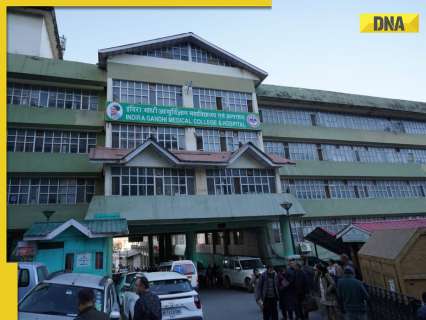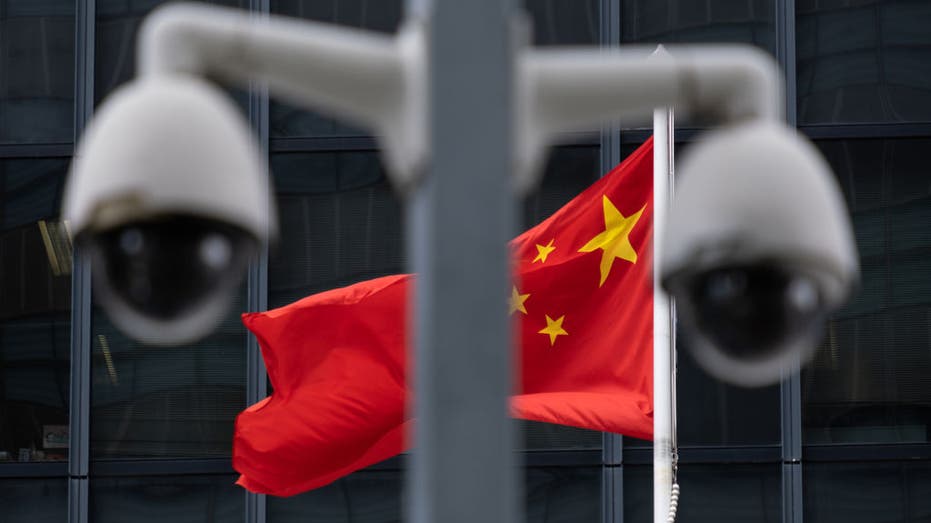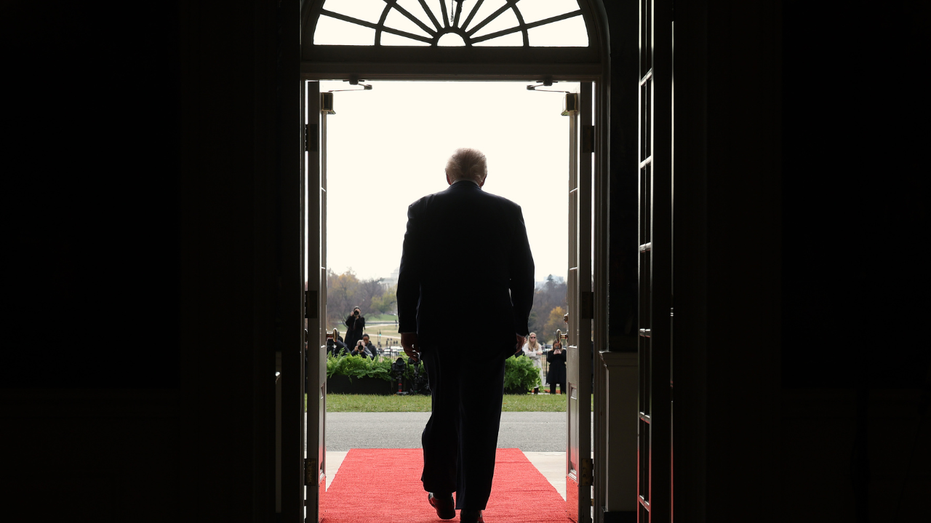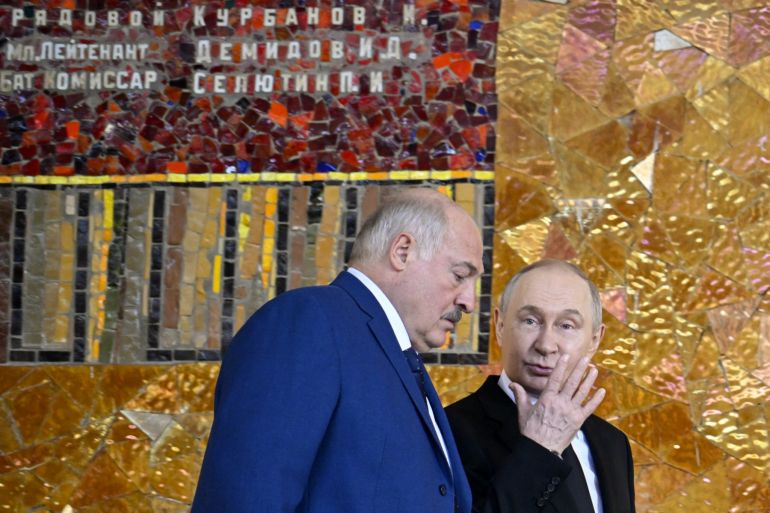Healthcare services hit across Himachal Pradesh: Why resident doctors are on indefinite strike?

An indefinite strike by resident doctors began across Himachal Pradesh on Saturday, a day after they collectively went on mass leave on Friday. The protest follows the termination of a resident doctor after a video showing him allegedly assaulting a patient in Shimla went viral in recent days.
Mumbai Local Train news: 300 services hit this weekend due to…, what to expect next? check when will trains resume

Mumbai’s suburban rail network is witnessing large-scale disruptions this weekend due to infrastructure and maintenance works by Western Railway and Central Railway. These works have affected local train services and led to cancellations, diversions and suspensions.
Unnao rape case BIG update, Victim, mother meets CBI, submits complaint, says, ‘IO colluded with judge…’

The victim of the 2017 Unnao rape case, along with her mother, met officials of the Central Bureau of Investigation (CBI) in the national capital on Saturday and submitted a complaint alleging that the investigating officer (IO) colluded with a judge to ensure the accused side wins.
Navi Mumbai HORROR: Woman strangles six-year-old daughter to death over not speaking marathi, was undergoing psychiatric treatment

In a tragic case from Maharashtra, a woman has strangled her six-year-old daughter to death after her child allegedly could not speak Marathi. Police has said that the woman, who live in Navi Mumbai’s Kalamboli, killed her daughter on Tuesday, December 24.
2025 shockers: The biggest moments that rocked the campaign trail

It was an off-year when it comes to elections, but 2025 was on fire on the campaign trail as next year’s looming midterm showdowns took shape. While it was never expected to match the intensity of the tumultuous 2024 battles for the White House and Congress, this year’s off-year elections grabbed outsize national attention and served as a key barometer leading up to the 2026 midterm contests for the House and Senate majorities. Here are five of the biggest moments that shaped the campaign trail. Aiming to prevent what happened during his first term in the White House when Democrats reclaimed the House majority in the 2018 midterms, President Donald Trump in June first floated the idea of rare but not unheard of mid-decade congressional redistricting. HERE ARE THE NEXT BATTLEGROUNDS IN REDISTRICTING FIGHT The mission was simple: redraw congressional district maps in red states to pad the GOP’s razor-thin House majority to keep control of the chamber in the 2026 midterms, when the party in power traditionally faces political headwinds and loses seats. Trump’s first target: Texas. A month later, when asked by reporters about his plan to add Republican-leaning House seats across the country, the president said, “Texas will be the biggest one. And that’ll be five.” The push by Trump and his political team triggered a high-stakes redistricting showdown with Democrats to shape the 2026 midterm landscape in the fight for the House majority. Republican Gov. Greg Abbott of Texas called a special session of the GOP-dominated state legislature to pass the new map. But Democratic state lawmakers, who broke quorum for two weeks as they fled Texas in a bid to delay the passage of the redistricting bill, energized Democrats across the country. Among those leading the fight against Trump’s redistricting was Democratic Gov. Gavin Newsom of California. California voters overwhelmingly passed Proposition 50, a ballot initiative that will temporarily sidetrack the left-leaning state’s nonpartisan redistricting commission and return the power to draw the congressional maps to the Democratic-dominated legislature. That is expected to result in five more Democratic-leaning congressional districts in California, which aimed to counter the move by Texas to redraw their maps. The fight quickly spread beyond Texas and California. Right-tilting Missouri, North Carolina and Ohio have drawn new maps as part of the president’s push. SETTING THE STAGE: WHAT THE 2025 ELECTIONS SIGNAL FOR NEXT YEAR’S MIDTERM SHOWDOWNS Republicans are looking to GOP-controlled Florida, where early redistricting moves are underway in Tallahassee. A new map could possibly produce up to five more right-leaning seats. But conservative Gov. Ron DeSantis and GOP legislative leaders don’t see eye to eye on how to move forward. “We must keep the Majority at all costs,” Trump wrote on social media this month. In blows to Republicans, a Utah district judge this month rejected a congressional district map drawn up by the state’s GOP-dominated legislature and instead approved an alternate that will create a Democratic-leaning district ahead of the 2026 midterm elections. And Republicans in Indiana’s Senate defied Trump, shooting down a redistricting bill that had passed the state House. But Trump scored a big victory when the conservative majority on the Supreme Court greenlighted Texas’ new map. Other states that might step into the redistricting war are Democratic-dominated Illinois and Maryland and two red states with Democratic governors, Kentucky and Kansas. Virginia Democrats were cruising toward convincing victories in the commonwealth’s statewide elections when a scandal sent shock waves up and down the ballot. SHOWDOWN FOR THE HOUSE: DEMOCRATS, REPUBLICANS BRACE FOR HIGH-STAKES MIDTERM CLASH Democratic attorney general nominee Jay Jones instantly went into crisis mode after controversial texts were first reported by the National Review in early October. Jones acknowledged and apologized for texts he sent in 2022, when he compared then-Virginia House Speaker Todd Gilbert to mass murderers Adolf Hitler and Pol Pot, adding that if he were given two bullets, he would use both against the GOP lawmaker to shoot him in the head. Jones faced a chorus of calls from Republicans to drop out of the race. And the GOP leveraged the explosive revelations up the ballot, forcing the Democratic Party nominee, former Rep. Abigail Spanberger, back on defense in a campaign where she was seen as the frontrunner against Republican rival Lt. Gov. Winsome Earle-Sears. Earle-Sears didn’t waste an opportunity to link Spanberger to Jones. And during October’s chaotic and only gubernatorial debate, where Earle-Sears repeatedly interrupted Spanberger, the GOP gubernatorial nominee called on her Democratic rival to tell Jones to end his attorney general bid. “The comments that Jay Jones made are absolutely abhorrent,” Spanberger said at the debate. But she neither affirmed nor pulled back her support of Jones. KEY TAKEAWAYS FROM THE 2025 ELECTIONS While the scandal grabbed national headlines, in the end it didn’t slow down the Democrats. Spanberger crushed Earle-Sears by 15 points. Democrats won the separate election for lieutenant governor by 11 points, and Jones even pulled off a 6-point victory over Republican incumbent Jason Miyares. Just eight days into Trump’s second term in the White House, demoralized Democrats had something to cheer about. Democrat Mike Zimmer defeated Republican Katie Whittington in a special state Senate election in Iowa, flipping a Republican-controlled vacant seat in a district that Trump had carried by 21 points less than three months earlier. Zimmer’s victory triggered a wave of Democrats overperforming in special elections and regularly scheduled off-year ballot box contests. Among the most high profile was the victory by the Democratic candidate in Wisconsin’s high-stakes and expensive state Supreme Court showdown. With inflation, the issue that severely wounded them in the 2024 elections, persisting, Democrats were laser focused on affordability, and the wins kept coming. In November’s regularly scheduled elections, they won the nation’s only two gubernatorial showdowns — in New Jersey and Virginia — by double digits. And they scored major victories in less high-profile contests from coast to coast. The year ended with Democrats winning a mayoral election in Miami, Florida, for the first time in
Most shocking examples of Chinese espionage uncovered by the US this year: ‘Just the tip of the iceberg’

This year has had no shortage of alarming Chinese espionage efforts targeting the United States that were uncovered by government officials. 2025 saw the conviction of a former active-duty military member accused of selling Navy secrets to Chinese intelligence, the arrests of Chinese nationals accused of trying to recruit active-duty service members as intelligence assets and smuggle dangerous toxins into the United States, the disruption of a Chinese “Hacker-for-Hire” ecosystem, and more. “President Trump is not afraid of the Chinese,” Gatestone Institute senior Fellow Gordon Chang said on Fox Business’ “Mornings with Maria” following a new arms sale to Taiwan. However, Chang lamented that Trump was ambivalent to the “information war” with China, noting that “the Chinese are able to tar him and tell the rest of the world that Trump is afraid of the Chinese … but when you look at the reality, President Trump is going after China across the board,” Chang argued. EX-TRUMP DHS OFFICIAL SOUNDS ALARM OVER NATIONAL SECURITY THREAT WITHIN CRITICAL US INDUSTRY One of the alarming Chinese espionage headlines to hit the news this year was an effort by several Chinese nationals to smuggle a pathogen described by the government as a “potential agroterrorism weapon” into the United States in 2024. A complaint against the suspects was unsealed by federal officials this year, leading the case to make headlines nationwide. One of those individuals complicit in the case, Yunqing Jian, 33, a citizen of the People’s Republic of China and a researcher employed at the University of Michigan, was allegedly receiving money from the Chinese government for her work on the pathogen the suspects were trying to smuggle. Meanwhile, her boyfriend, who worked at a Chinese university conducting research on that same pathogen, initially lied but then admitted to smuggling it through the Detroit airport so it could be taken to the University of Michigan laboratory where his girlfriend worked. Jian eventually pleaded guilty. She was later sentenced to time served and then deported back to China. Her boyfriend was immediately deported to China when he was caught at the Detroit airport trying to bring the toxin into the United States. Just this month, a separate Chinese researcher from Indiana University was also accused by the Federal Bureau of Investigation (FBI) of trying to smuggle a dangerous toxin into the country, this time Escherichia coli (E. coli). The FBI identified the smuggling suspect as post-doctoral researcher Youhuang Xiang, who also allegedly made false statements to law enforcement. FCC, STATE AGS TO JOIN FORCES IN CRACKDOWN ON CHINA-LINKED COMMUNICATIONS TECHNOLOGY Federal officials have disrupted Chinese intelligence efforts to recruit assets in the United States this year as well, according to Justice Department communications. In July, federal officials disrupted a “Clandestine PRC Ministry of State Security Intelligence Network” that was operating in the United States and was attempting to bribe active-duty soldiers with thousands in cash to work for them as assets. The following month, in a separate case, a federal jury convicted former Navy sailor, Jinchao Wei, also known as Patrick Wei, who was caught trying to sell military secrets to a Chinese intelligence officer for $12,000. Hacking was a big part of Chinese espionage efforts in 2025 too. A major Chinese-linked hacking threat referred to as “Salt Typhoon” was reported this year to have launched an attack compromising at least 200 American companies as part of its broader efforts that have included gaining access to law enforcement wiretapping mechanisms and information on members of Congress, according to the top cyber chief at the FBI. Critical infrastructure manufacturers like AT&T, Verizon, Charter Communications, and others have reportedly been exposed by the group, which was first uncovered publicly in 2024 but whose efforts have dated back several years. Earlier this year, in March, the Department of Justice also announced that federal officials had disrupted a “Hacker-for-Hire Ecosystem” operating out of China at the direction of Chinese intelligence officers as well. These malicious actors worked for private companies and as contractors in China, which was intended to hack and steal information in a way that would obscure the Chinese government’s involvement, the DOJ said. China’s increasing acquisition of farmland in the United States has been of growing concern during 2025 as well, with Chinese-linked entities buying up land near military bases, including a trailer park near Missouri’s Whiteman Air Force Base. “From smuggling crop-killing pathogens and E. Coli into the United States, to conspicuously purchasing a trailer park that shares a fence with America’s entire B-2 bomber fleet and selling ‘green’ tech devices that spread kill switches across our electrical grid, Communist China seeks to harm the American homeland,” Michael Lucci, a China-hawk and the founder of State Armor Action, a conservative group with a mission to develop and enact state-level solutions to global security threats such as those emanating from China. “Furthermore, these events are just the tip of the iceberg,” Lucci continued. “Lawmakers across the country must accelerate action to shield Americans from CCP influence, espionage, and sabotage. Communist China treats the United States as an enemy, and it is past time we recognize the CCP party-state always and everywhere chooses conflict with the United States.”
‘Perception vs. reality’: Trump’s economy picks up speed — but voters aren’t buying it yet

Economic momentum is building under President Donald Trump, but translating those gains into political advantage will require sharper messaging, economist Stephen Moore said, as voters remain skeptical despite improving indicators. “There’s a perception, and there’s reality,” explained Moore in an interview with Fox News Digital. “The reality is what the numbers show — that median family income is up by about $1,200 this year, adjusted for inflation. We’re seeing real increases in wealth. Anyone investing in the stock market — not just rich people, but about 160 million Americans — has retirement savings in stocks.” WHITE HOUSE TEASES MAJOR HOUSING AFFORDABILITY PLAN AS PRICES SQUEEZE AMERICANS Still, Moore, a former Trump adviser and co-founder of a free-market advocacy organization, Unleash Prosperity, acknowledged that rising costs in everyday life continue to shape how many Americans view the economy. “People tend to focus on the things that are rising in price, and I understand that,” Moore said. “But there are also areas where costs have fallen, including gasoline, airline tickets and some everyday items.” That disconnect between economic data and how voters feel about the economy poses a political challenge for Trump, who returned to the White House promising affordability but is now confronting doubts over whether that pledge is being met. A Fox News national survey found that 76% of voters rate the economy negatively, up from 67% in July and 70% at the end of former President Joe Biden’s term. The poll showed voters are more likely to blame Trump than Biden for current economic conditions, with three times as many saying Trump’s policies have hurt them personally. The sentiment has fueled Democratic messaging focused on affordability, which has resonated in recent state and local elections. THE SOCIALIST EXPERIMENT COMES TO NYC: MAMDANI’S VISION FOR A MORE AFFORDABLE CITY That disconnect, Moore said, isn’t just about prices — it’s also about tone. “I think people want empathy from the president,” Moore said. “People in the middle and working class want to know that this president understands the struggles of working 40 hours a week and still having a hard time meeting their bills.” To close that gap, Moore compared Trump’s current challenge to Ronald Reagan’s early presidency, which followed economic difficulties after Jimmy Carter — a dynamic he said mirrors the aftermath of the Biden administration. “Trump should use an old line from Ronald Reagan, because Reagan’s first 18 months in office were very tough. We had a very bad economy as a residual effect from Jimmy Carter. And Reagan told the American people, stay the course, these policies are going to work and they’re going to make America better off.” Moore said recent data suggest the recovery is accelerating, and that momentum is likely to continue. “In the last couple of months, the economy has really sped up,” Moore said. “At 4.3% growth, that’s a very high rate, and the recovery is well in progress. It’s been a very prosperous first year and I expect 2026 to bring very strong continued economic growth.”
Over 1,500 flights cancelled as winter storm Devin hits US holiday travel

More than 40 million Americans under winter storm warnings or weather advisories as heavy snow expected. Published On 27 Dec 202527 Dec 2025 Click here to share on social media share2 Share Thousands of flights have been cancelled and delayed in the United States due to winter storm Devin, airline monitoring website FlightAware reports, dealing a blow to air travel during peak holiday time. A total of 1,581 flights “within, into or out of the” US were cancelled and 6,883 delayed as of 4pm US Eastern Time (21:00 GMT) on Friday, according to FlightAware, which describes itself as the world’s largest flight tracking data company. Recommended Stories list of 4 itemsend of list The delays and cancellations came as the US National Weather Service warned of winter storm Devin causing “hazardous travel conditions” and heavy snow forecast across parts of the Midwest and northeast. More than 40 million Americans were under winter storm warnings or weather advisories on Friday, plus another 30 million under flood or storm advisories in California, where a so-called atmospheric river has brought a deluge of rain. New York City, the largest US city, was bracing for up to 250mm (10 inches) of snow overnight on Friday, the most expected in four years. Temperatures were forecast to drop into the weekend when an Arctic blast is expected to swoop down from Canada. New York’s John F Kennedy airport, Newark Liberty international airport and LaGuardia airport warned travellers of potential delays or cancellations. More than half of the flight cancellations and delays took place at these three airports, according to FlightAware. JetBlue Airways cancelled 225 flights on Friday, the most among the US carriers, closely followed by Delta Air Lines, which cancelled 212 flights. Republic Airways cancelled 157 flights, while 146 were cancelled by American Airlines and 97 by United Airlines. Advertisement “Due to winter storm Devin, JetBlue has cancelled approximately 350 flights today and tomorrow, primarily in the Northeast where JetBlue has a large operation,” a JetBlue spokesperson told the Reuters news agency. On the US West Coast, powerful winter storms brought the wettest Christmas season to Southern California in 54 years. There was still a risk of more flash flooding and mudslides on Friday despite slackening rain around Los Angeles, the National Weather Service warned. Firefighters rescued more than 100 people on Thursday in Los Angeles County, with one helicopter pulling 21 people from stranded cars, officials said. Adblock test (Why?)
Russia using Belarus territory to bypass Ukraine’s defences, says Zelenskyy

Ukrainian President Volodymyr Zelenskyy has accused Russia of using ordinary apartment blocks on the territory of its ally Belarus to attack Ukrainian targets and circumvent Kyiv’s defences. Zelenskyy made the allegations on Friday amid revelations by intelligence experts that Moscow has likely stationed its new nuclear-capable hypersonic ballistic missiles at a former airbase in eastern Belarus – a move seen as bolstering Russia’s ability to strike targets in Europe. Recommended Stories list of 3 itemsend of list “We note that the Russians are trying to bypass our defensive interceptor positions through the territory of neighbouring Belarus. This is risky for Belarus,” Zelenskyy wrote on the Telegram messaging app on Friday after a military staff meeting. “It is unfortunate that Belarus is surrendering its sovereignty in favour of Russia’s aggressive ambitions,” the Ukrainian leader said. Zelenskyy said Ukrainian intelligence had observed that Belarus was deploying equipment “in Belarusian settlements near the border, including on residential buildings” to assist Russian forces in carrying out their attacks. “Antennae and other equipment are located on the roofs of ordinary five-storey apartment buildings, which help guide ‘Shaheds’ [Russian drones] to targets in our western regions,” he said. “This is an absolute disregard for human lives, and it is important that Minsk stops playing with this,” he added.> The Russian and Belarusian defence ministries did not immediately respond to requests for comment. Russia had previously used Belarusian territory to launch its February 2022 invasion of Ukraine, and Belarus remains a steadfast ally, though President Alexander Lukashenko has pledged to commit no troops to the conflict. Russian President Vladimir Putin and Belarusian President Alexander Lukashenko attend a wreath-laying ceremony at the Eternal Flame in the Hall of Military Glory at the Mamayev Kurgan World War II memorial complex in Russia’s southern city of Volgograd in April 2025 [File: Alexander Nemenov/AFP] Belarus defence minister: ‘Our response’ to the West’s ‘aggressive actions’ Amid reports of closer Russian and Belarusian coordination in the war on Ukraine, satellite imagery analysed by two US researchers appears to show that Moscow is stationing Oreshnik hypersonic ballistic missiles in eastern Belarus, according to an exclusive Reuters news agency report. Advertisement Oreshnik had been described by Russian President Vladimir Putin as impossible to intercept, and he previously made clear his intention to deploy the missiles – which have an estimated range of up to 5,500km (3,400 miles) – in Belarus. Researchers Jeffrey Lewis of the Middlebury Institute of International Studies, in California, and Decker Eveleth of the CNA research and analysis organisation in Virginia, said they were 90 percent certain that mobile Oreshnik launchers would be stationed at the former Russian airbase near Krichev, some 307km (190 miles) east of the Belarus capital of Minsk. The United States researchers said reviews of satellite imagery revealed a hurried construction project in Belarus that began between August 4 and 12, and contained features consistent with those of a Russian strategic missile base. One “dead giveaway” in a November 19 satellite image was a “military-grade rail transfer point” enclosed by a security fence to which missiles, their mobile launchers and other components could be delivered by train to the site, Eveleth told Reuters. Another feature, said Lewis, was the construction of a concrete pad that was then covered with earth, and which he called “consistent” with a camouflaged missile launch point. The researchers’ assessment broadly aligns with US intelligence findings, according to the report. Russia and Belarus have yet to comment on the Reuters report. But, earlier this month, President Lukashenko acknowledged the deployment of such weapons in his country, although he did not say to which part of the country the Russian missiles have been deployed. He added that up to 10 Oreshniks would be deployed within the country. State-run BelTA news agency quoted Belarusian Defence Minister Viktor Khrenin as saying this week that the Oreshnik’s deployment would not alter the balance of power in Europe and was “our response” to the West’s “aggressive actions”. The White House did not immediately respond to a request for comment on the reported Russian missile deployment to Belarus. Ukraine’s capital came under a new “massive” Russian attack early on Saturday, with explosions reported in the city, air defences in operation and the Ukrainian military saying cruise and ballistic missiles were being deployed. On Sunday, President Zelenskyy is scheduled to meet with US President Donald Trump to finalise a possible ceasefire deal between Moscow and Kyiv. In advance of the meeting, Zelenskyy told the Axios news site that he was open to putting the Washington-led “20-point” peace plan to a referendum – as long as Russia agreed to a 60-day ceasefire to allow Ukraine to prepare for and hold such a vote. Adblock test (Why?)
Thailand and Cambodia agree on ceasefire, Cambodia Defence Ministry says

BREAKINGBREAKING, Agreement follows talks aimed at ending weeks of deadly clashes along the Thailand-Cambodia border. Published On 27 Dec 202527 Dec 2025 Click here to share on social media share2 Share Thailand and Cambodia said they have signed a ceasefire agreement to end weeks of fierce fighting along their border which has killed more than 100 and forced the displacement of more than half a million civilians in both countries. “Both sides agree to an immediate ceasefire after the time of signature of this Joint Statement,” the Thai and Cambodian defence ministers said in a statement on Saturday. Recommended Stories list of 4 itemsend of list “Both sides agree to maintain current troop deployments without further movement,” the ministers said. The ceasefire is scheduled to take effect at noon local time (05:00 GMT) and extends to “all types of weapons” and “attacks on civilians, civilian objects and infrastructures, and military objectives of either side, in all cases and all areas”. The agreement, signed by Thai Defence Minister Natthaphon Narkphanit and his Cambodian counterpart Tea Seiha, ends 20 days of fighting, the worst between the two Southeast Asian neighbours in years. This is a breaking news story. More to follow soon. Adblock test (Why?)

